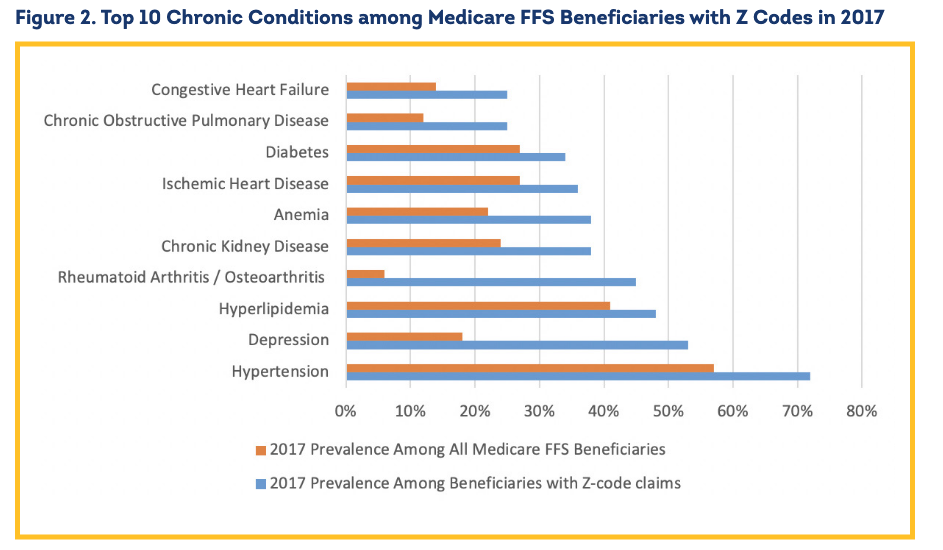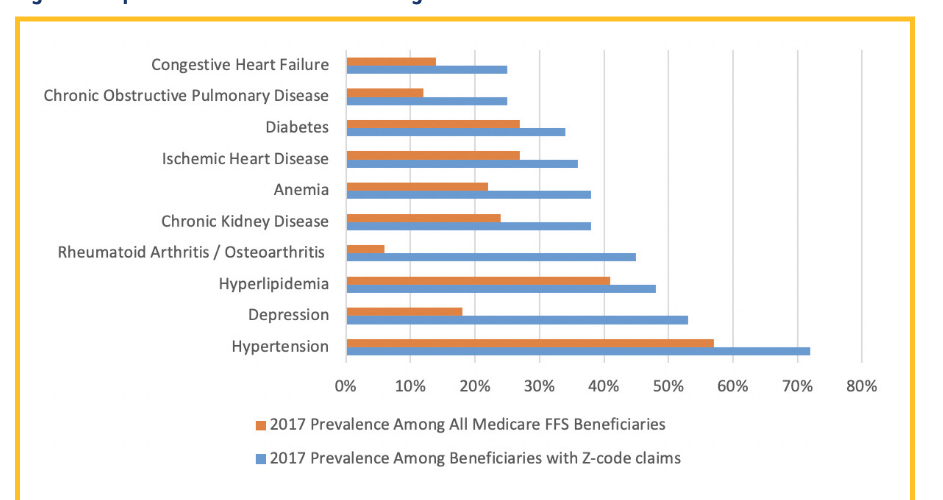
For the first time, The Center for Medicare and Medicaid (CMS) has released a report looking at how non-medical, unmet social needs affect the health of Medicare patients.
The report found that homlessness and social isolation were the most commonly-documented social challenges. High blood pressure and depression were the two most common chronic medical conditions faced by those with an unmet social need.
But the report clearly noted that the Medicare system likely underreports these issues and says “more widely adopted and consistent documentation is needed to more comprehensively identify social needs, and monitor progress in addressing them.”
CMS found that in 2017, among the 33.7 million Medicare beneficiaries, 467,000 of them (1.4%) had some SDOH need documented in their medical claims data.
Other findings:
Gender: Homelessness was much more common among male Medicare beneficiaries than female Medicare beneficiaries. However, social isolation (“problems related to living alone”) was much more common among female Medicare beneficiaries than male Medicare beneficiaries
Race/Ethnicity: The rate of homelessness among Black or American Indian/Alaskan Native Medicare beneficiaries more than three times higher than the rate of homelessness among White Medicare beneficiaries.
EHF’s BOTTOM LINE from the report:
- Underlying, non-medical conditions have a direct impact on a person’s health.
- Medical care alone isn’t the one and only key to good health.
- That’s why it’s so important for health insurance plans and other programs like Medicare to cover and pay for programs that address #HealthNotJustHealthCare, especially for those with the least resources.
